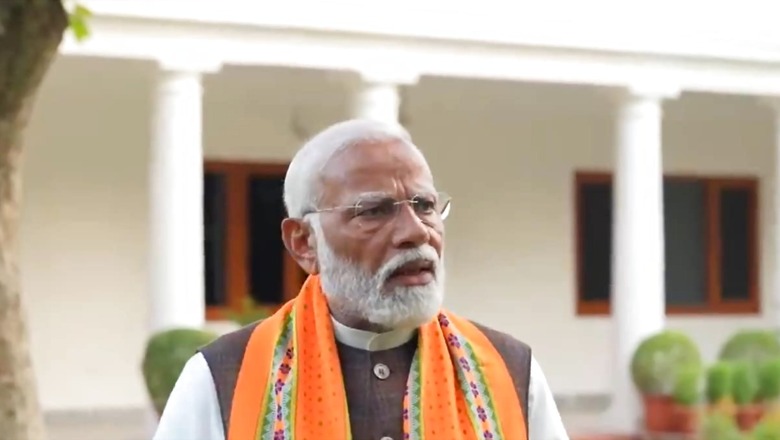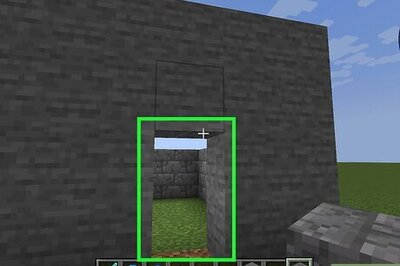
views
The decision to enact Article 370 in Jammu and Kashmir was the “agenda of 4-5 families” and was neither the wish of the people of Kashmir nor the rest of India, Prime Minister Narendra Modi said in an interview to news agency ANI on Tuesday.
During the interview, he said he was pained when he had to take the tough decision of shutting down the internet in J&K but added that it was in the best interests of the people. He said, as a result, the Union Territory has seen no internet disruptions in the last five years.
“Article 370 was the agenda of only 4-5 families. It was neither the agenda of the people of Kashmir nor the agenda of the people of the country. For their benefit, they had built such a wall of Article 370 and used to say that if it is removed, there will be a fire… After the removal of Article 370, there is a feeling of more unity. The feeling of belongingness is increasing among the people of Kashmir. Its direct result is also visible in elections and tourism …”
Talking about the roadmap for J&K and the high voter turnout in India’s newest Union Territory in the ongoing Lok Sabha elections, PM Modi said: “First of all, I would like to pray to the justice system of our country that if the government wants to do any work, we have a design, strategy to do that work. To solve such problems, work had to be done under that strategy. Now sometimes, I had to shut down the internet for that. Some NGO went to court and it became a big issue in the court, but today the children there proudly say that the internet has not been shut down for the last five years and we have been getting all the facilities for the last five years.”
#WATCH | On his decision to remove Article 370, PM Narendra Modi says, "Article 370 was the agenda of only 4-5 families, it was neither the agenda of the people of Kashmir nor the agenda of the people of the country. For their benefit, they had built such a wall of 370 and used… pic.twitter.com/x9P263Khes— ANI (@ANI) May 28, 2024
“There was some pain for a few days, but it was for a good cause… It is very important to save the country from such NGOs. Secondly, when the common man votes there, it is not just to make someone win, voting means that the voter accepts the Constitution of India and expresses his dedication towards the entire spirit of India…”
“As a result, voting records of 40 years have been broken. It is a matter of greatest satisfaction for me that my brothers and sisters from Kashmir came forward to vote with great enthusiasm. By voting, they have given a message to the world and to those who used to have doubts,” the Prime Minister said.
#WATCH | On high voter turnout in Kashmir, PM Narendra Modi says, "First of all, I would like to pray to the justice system of our country that if the government wants to do any work, they have a design, strategy to do that work. To solve such problems, work had to be done under… pic.twitter.com/C2Qhar0BsT— ANI (@ANI) May 28, 2024
In August 2019, the Bharatiya Janata Party-led Centre abrogated the provisions of Article 370 of the Constitution that had bestowed special rights on Jammu and Kashmir and bifurcated the erstwhile state into Union Territories — J&K and Ladakh. The ongoing Lok Sabha elections are the first major election in J&K since.
With the conclusion of voting in the Anantnag-Rajouri seat on Saturday, Jammu and Kashmir has registered an unprecedented 58.11% polling in its five parliamentary constituencies, which was highest in the past 35 years.
Udhampur Lok Sabha seat was the first to go to polls on April 19, recording 68% turnout followed by Jammu which recorded 69.1% on April 26.
In Kashmir, Srinagar witnessed 38% polling on May 13 which was the second highest in three decades, while the Baramulla Lok Sabha constituency registered an all time high voter turnout of 58.17% on May 20. Anantnag-Rajouri also recorded around 53% polling.
Explore in-depth coverage of Lok Sabha Election 2024 Voter Turnout, Upcoming Phase, Results Date, Exit Poll And Much More At News18 Website
















Comments
0 comment